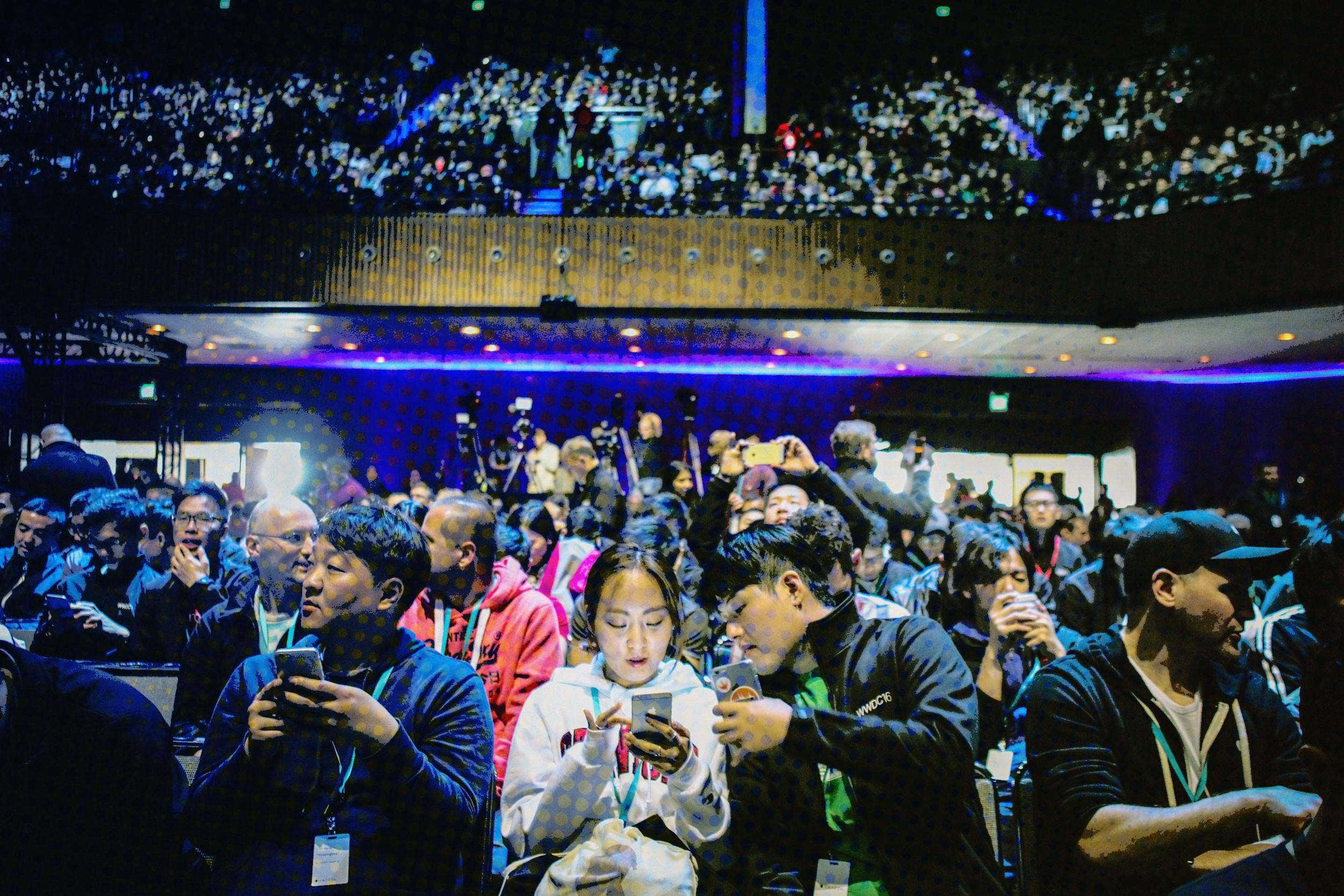How would you react to discovering that you could drag an image from a Siri-powered internet search directly into a document on your computer? “Oh, that’s kinda neat”? “I might use that every once in a while”? “Can’t I already do that with Google”?
Craig Federighi has a different take: “It’s pretty epic.” At Apple’s 27th-annual Worldwide Developers Conference in San Francisco on Monday, the senior vice president of software engineering was the company’s most enthusiastic champion for a deluge (OK, a gentle morning misting) of small, iterative product updates. The Apple Watch will run faster! Apple TV will make it easier to sign in to your cable apps! Pages now has Safari-like tabs for easier browsing! Apple, just like its silver-haired executive, is living inside the handsome bubble, shamelessly hyping the most mundane of product updates with full knowledge that they’ll all earn rapturous applause.
The tenor of WWDC (“DubDub” if you’re in the know) has changed over the years. It used to be the site of Apple’s annual iPhone unveiling, making it one of the most critical events on the company’s calendar. But since phone launches shifted to September and earned their own fall showcases, the developers conference has waffled between boisterous and boring. Last year, Apple unveiled its Spotify killer and got Drake to don a throwback company jacket that less famous nerds continue to lust after. In 2013, the company sparked a wave of nostalgia for faux-wood textures (abandoning a principle called skeuomorphism) when it announced a complete overhaul of iOS’s visuals. 2014 was mundane by comparison, with the biggest announcement being a new iOS programming language called Swift.
Many of the more interesting features the company showed off were clearly lifted from competitors. WatchOS will now let you share your running times with friends, Fitbit-style, and send them awkward “smack talk” (“A.W.E.S.O.M.E.” is a real preset message someone on the Apple Watch team got paid to write). The Mac is being blessed with Siri’s voice-activated smarts, a feature that Microsoft brought to PCs with its own Cortana assistant last year. iOS will make better use of face-recognition technology to automatically categorize people and objects, taking a page from Google and Facebook. And a new “Raise to Wake” feature, which shows notifications on an iOS device’s lock screen at a glance, mimics the functionality of my Android-powered Motorola X, a 2014 phone. There was a hefty “WoooOOOoooOOO!” for visual voicemail, which, yes, is just the contents of a voicemail typed out.
This, of course, is Apple’s way. The company has rarely been accused of being the first to think of a new technology — just ask Xerox — but rather the first to package it with a dead-simple interface and a well-timed Samuel L. Jackson commercial to help launch it into the mainstream (see also: MP3 players, touchscreen phones, possibly smartwatches). Only a company with as many industry-defining products as Apple could say one of its devices “changed thumbs forever” with a straight face and have us all nod knowingly.
In that sense, Apple’s keynote was a success. Apple users are already highly satisfied with the company’s products, so subtle changes that improve performance by filching from competitors will likely keep them content. And the company still has an uncanny ability to delight through its product design that no other tech giants can consistently match. While Apple blazed through its supplemental products, it lingered on iOS, rattling off 10 new features. The highlight of the show was the new and improved iMessage. Retooled for the Snapchat generation, the updated app will feature the ability to scribble hand-drawn notes, send texts of varying sizes, and automatically replace keywords with emoji. Apple recognizes that its ability to facilitate easy, expressive communication is a key company strength — Messages is the most used iOS app — so the company invests heavily in that area.
Developers, meanwhile, are likely salivating over Apple finally opening up some of its most popular services, including Siri, Maps, and Messages, to third parties. By loosening its stranglehold on the user experience, the company should be able to make its products more versatile and helpful in the long run (Android continues to beat iOS on sheer number of features, if not ease of use, because Google heavily encourages third-party partnerships). There’s no way the iPhone could have become the juggernaut it is today without the 2 million third-party apps that flood the App Store.
The trouble remains, as it has for years, that Apple finds it difficult to rope new customers into its ecosystem. iPhone sales dropped for the first time ever in the first quarter of 2016, and the fast-falling iPad now seems destined to be a warmly remembered curiosity on VH1’s I Love the Twenty-Tens. The company is looking to subscription services for financial solace, so we’re getting a revamped-but-still-convoluted Apple Music and new third-party streaming apps for Apple TV. (Curiously, the addition of the live-streaming service Sling TV throws some cold water on the long-running rumor that Apple will build its own cable-killer.)
Apple is still making money hand over fist, but this is America, where if you’re not winning even more, you’re losing. So it’s no surprise the company’s stock is down more than 20 percent in the past year. None of the me-too product updates Apple announced are likely to inspire legions of Android owners (most critically the ones in China) to snap up iPhones. The company’s iconic “one more thing” announcement strangely came earlier in the show rather than at the end, and it wasn’t even a thing — it was an ad for iOS.
Still, Apple’s devices will be better off when the latest operating systems launch this fall, and that will be enough to keep Apple’s deep-pocketed customer base happy — at least until the company’s September conference, when we’ll once again wonder if Apple is ready to unveil the Next Big Thing, or if the handsome bubble is finally going to pop.
